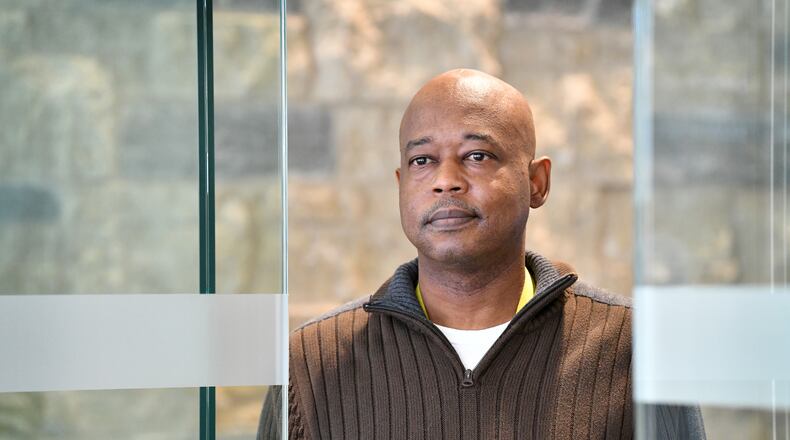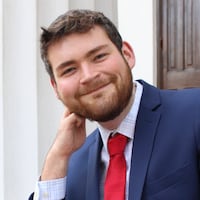Eric Bailey spends his mornings and afternoons working full time as a forensic investigator, assisting the Gwinnett County Medical Examiner’s Office in uncovering unnatural causes of death. After long days on the job, he heads to his Lawrenceville home to undergo dialysis treatments lasting 10 hours.
A few years ago, Bailey went to his doctor after noticing a nasty taste in his mouth while eating or drinking. Taking note of his high creatinine levels, his doctor told him to go to the emergency room. He was diagnosed with kidney failure in September 2018 and told he’d need a new kidney.
“During the week, all I do is work eight hours and go home and get on the machine so I can be ready for work the next day,” Bailey said. “All I want to do is sleep the weekend away because I’m so burned out from the week.”
Nearly two-and-a-half years later, Bailey is still searching for a kidney donor but with the help of his colleagues. After joining Bailey’s office in January as a fellow forensic investigator, Shannon Volkodav launched a campaign to spread awareness of his need for a new organ.
In the meantime, Volkodav and other colleagues at the Medical Examiner’s Office support him in whatever way possible, like driving him to his doctor appointments, he said. Two of his coworkers even tried to donate one of their kidneys to him, but they weren’t matches.
“Nothing would make me happier than to hear that someone has stepped forward to donate a kidney to Eric, because he is deserving of a second chance at enjoying good health,” Volkodav said.
Credit: Shannon Volkodav
Credit: Shannon Volkodav
A father of a 29-year-old son and 18-year-old daughter, Bailey lived a relatively active life before his diagnosis, enjoying hunting and fishing. Now, there’s no time for pastimes. Even though his long days of treatment leave him exhausted, Bailey said he prefers to keep working full-time.
“I pray every day and ask God to give me the strength to get up to do what I need to do, and so far it’s been working. I have some bad days, but I do have a lot of good days,” Bailey said. “I don’t have a lot of the strength that I used to have, so a lot of days I have to force myself to get up and get ready for work.”
Credit: Contributed
Credit: Contributed
“It would be easy for Eric to stay home, go on disability and just focus on his health, but he’s living his life to the max right now,” Volkodav said.
As of Feb. 17, there were more than 100,000 people in the U.S. awaiting organ donations, with about 91,000 of these individuals needing a kidney transplant, according to the U.S. Department of Health and Human Services’ Organ Procurement and Transplantation Network.
About every nine minutes, a new person is added to the transplant waiting list. Nevertheless, nearly 17 people die each day waiting for an organ.
Kidney failure occurs for several reasons, but Bailey said his doctors believe high blood pressure from stress caused his need for a new organ. Since his diagnosis, Bailey carefully watches what he eats and monitors his activities, doing everything he can to better his health outside of the kidney transplant he needs, Volkodav said.
Credit: Shannon Volkodav
Credit: Shannon Volkodav
If Bailey finds a donor, he looks forward to using the renewed time and energy the transplant would give him by traveling with his kids and attending sporting events. “It’d be like I’d have a new life again,” Bailey said.
Anyone interested in helping Bailey should contact Emory Healthcare at 855-366-7989, mentioning his name and date of birth of Dec. 4, 1973. He’s also on the transplant list for Erlanger Health System in Chattanooga, Tenn.
Bailey has blood type A, meaning he could receive a kidney from someone with blood types A or O. If someone isn’t a match for him, they could donate their kidney to another person on his behalf. In return, he could receive a kidney from an eligible donor through the National Kidney Registry’s Paired Exchange Donation program.
About the Author
The Latest
Featured





